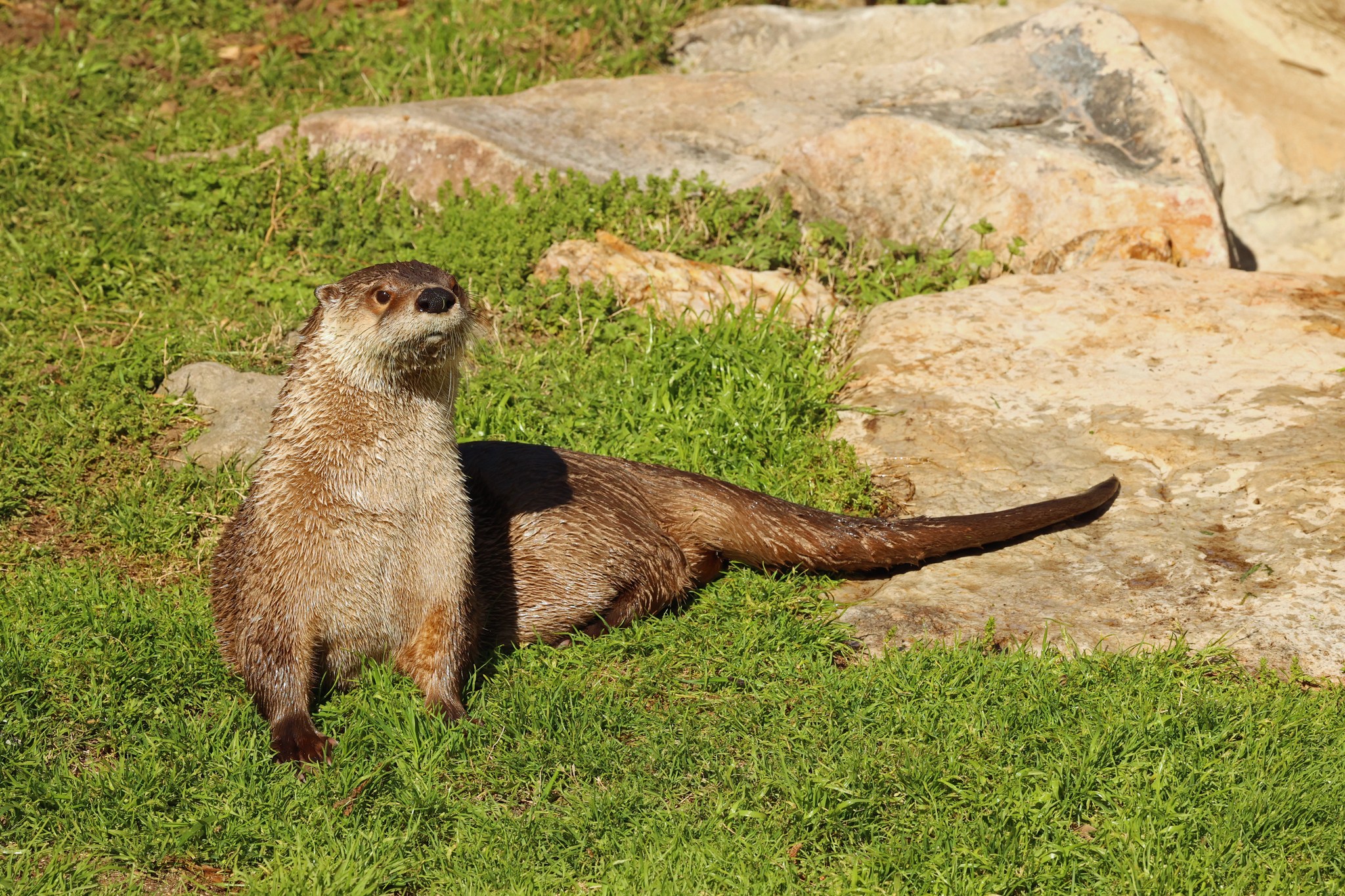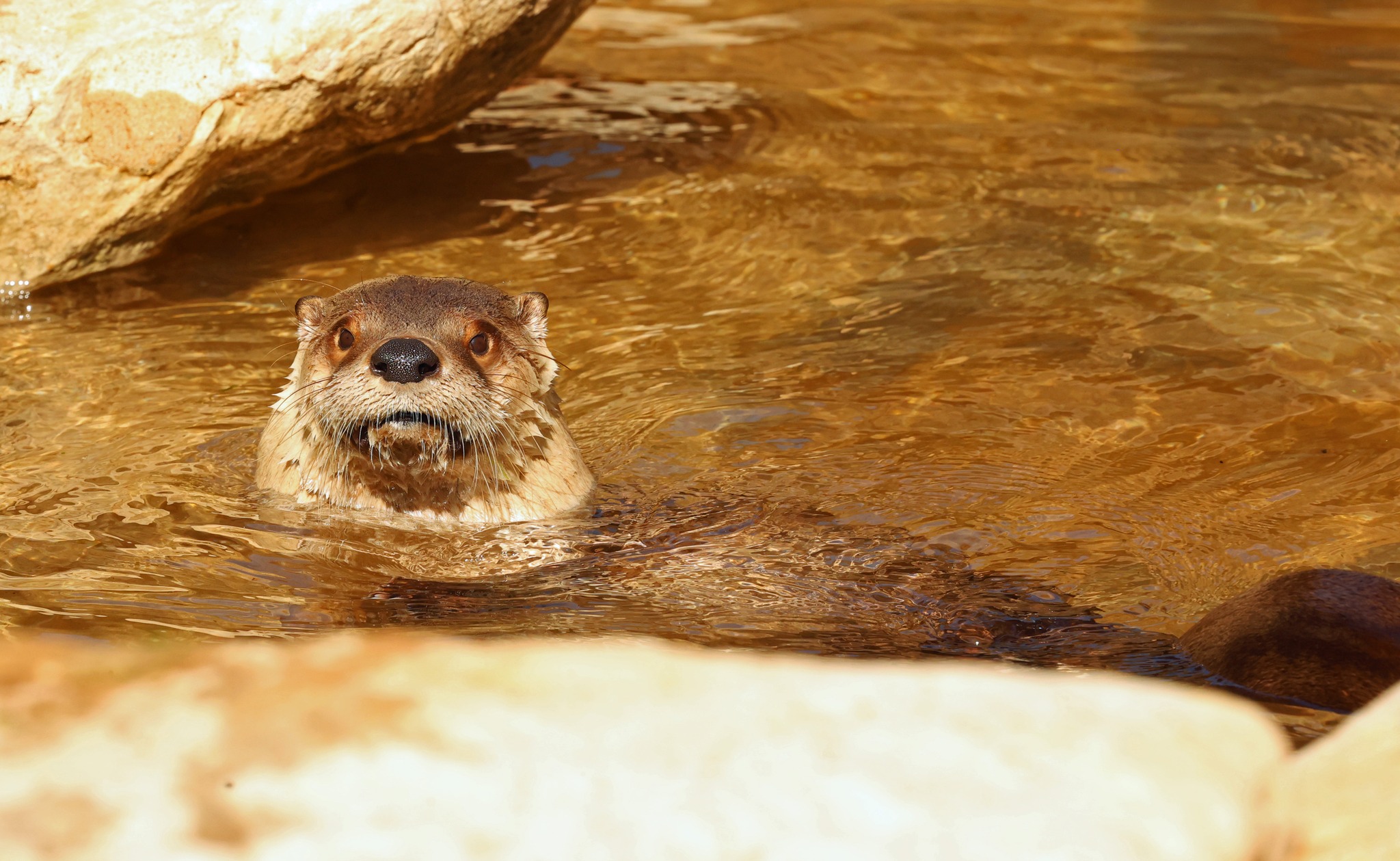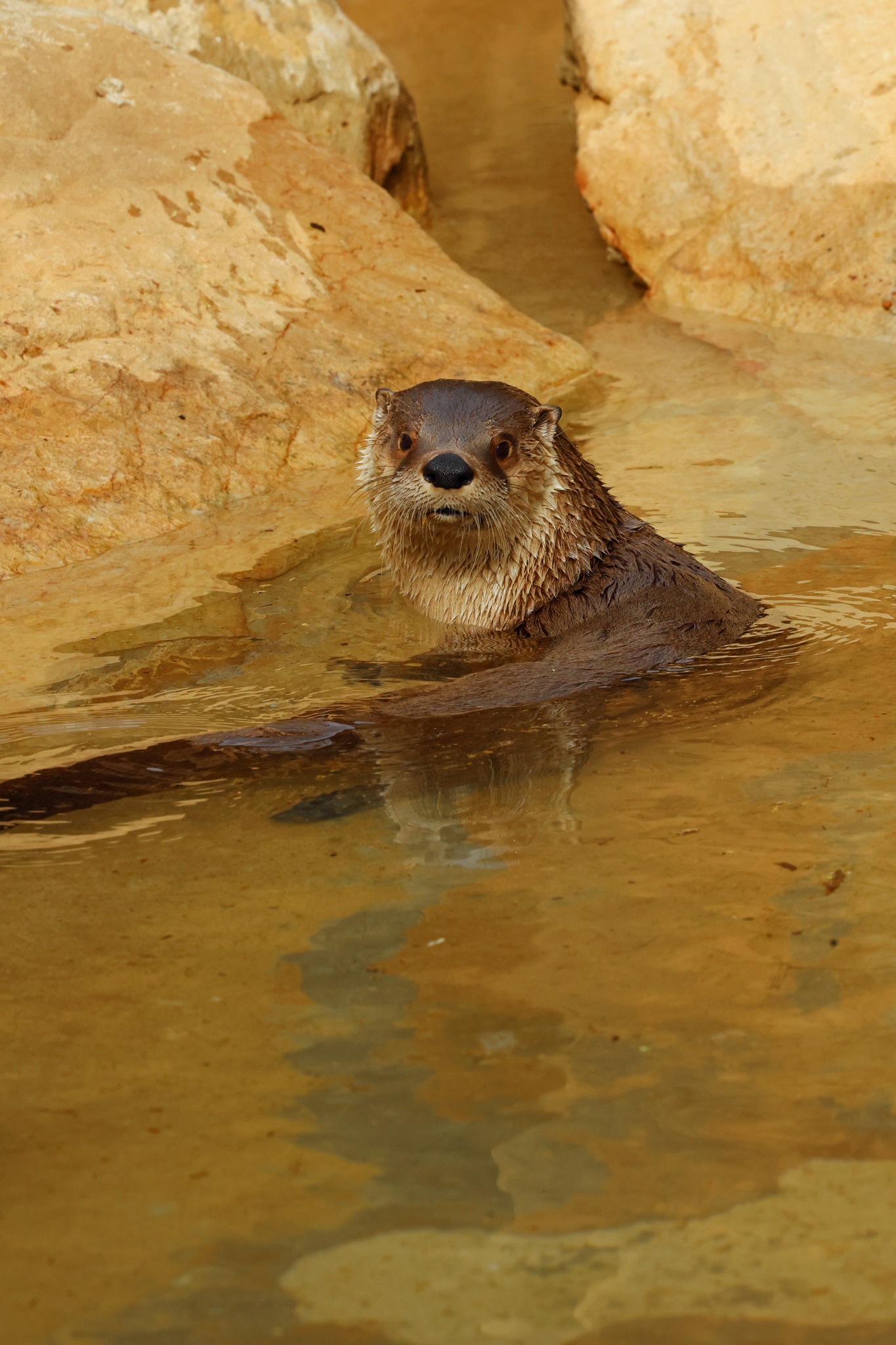Otters
Otters are semi-aquatic mammals found in freshwater and marine environments around the world. Known for their sleek bodies, webbed feet, and playful behaviors, otters are adept swimmers and skilled hunters. They feed primarily on fish, crustaceans, and other aquatic prey, using their dexterous paws to catch and manipulate their food. Otters are highly social animals, often living in family groups or pairs, and engaging in playful activities such as sliding, wrestling, and grooming. At the Little Rock Zoo, visitors can observe, North American River Otters and African Spot- Necked Otters, and learn about their natural history, behaviors, and conservation status.



North American River Otter
Native to waterways across North America, these sleek and agile mammals are known for their playful behaviors and aquatic prowess. North American River Otters have streamlined bodies, webbed feet, and powerful tails, allowing them to navigate through water with ease. They are skilled hunters, feasting on fish, crustaceans, and amphibians found in rivers, lakes, and streams.
- Otters have webbed feet and are expert swimmers. River otters can dive 60 feet or more. Sea otters dive even deeper in search of food.
- When otters are diving and rolling and rubbing against stuff, they’re not just having a good time playing. They’re also spreading their musky scent to mark territory as if to say “this is my property.” They also mark territory with urine.
- River otters are Members of the weasel family
- River otters have waterproof fur that protects their skin and keeps it warm and dry
Fur trapping in the 19th century brought river otter populations to very low populations, but they have returned to the healthy waterways and lakes of the Pacific Northwest. River otters are sensitive to water pollution. They will disappear from areas with high human populations if the waterways are compromised.
Using cleaners made from everyday ingredients like baking soda, rubbing alcohol and vinegar helps keep pollutants out of waterways where otters live. Store-bought products used to clean laundry, surfaces and dishes often contain chemicals that can poison wildlife and contaminate ecosystems. Get cleaner recipes here. Please join our efforts to secure a future for this species by donating to our conservation fund.
Photos by Karen Caster



